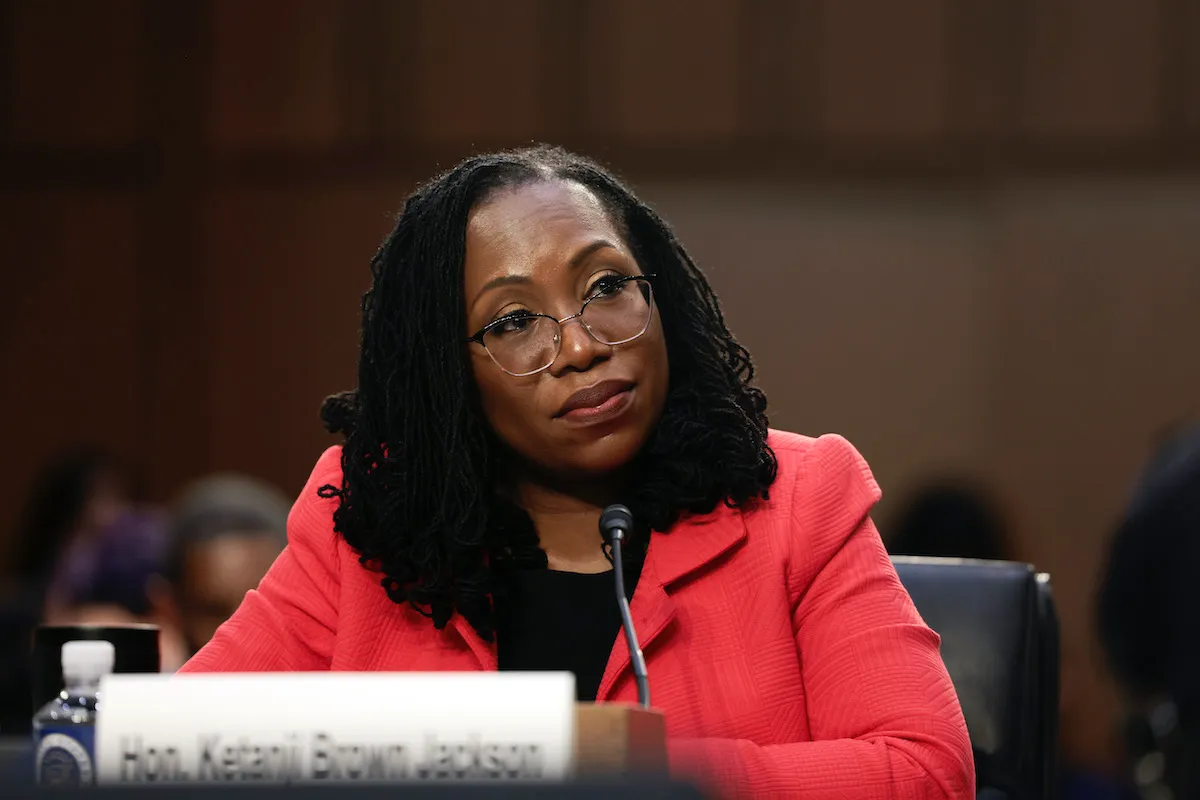The Supreme Court began its new term this week and the newly appointed Justice Ketanji Brown Jackson came out swinging. The court heard arguments Tuesday in Merrill v. Milligan, which takes on racist gerrymandering in Alabama. Essentially, the state is claiming that it’s perfectly fine that its map distributed Black residents in a way that seriously dilutes their voting power and that actually, it would be racist not to do that.
The state argued Tuesday that in drawing up its district map, “Alabama conducted its 2021 redistricting in a lawful, race-neutral manner.” When Justice Jackson had the chance to question those lawyers, she asked why “race-neutral” was something they were striving for in the first place.
“I guess [what] I’m a little confused about in light of that argument is why, given our normal assessment of the Constitution, why is it that you think that there’s a Fourteenth Amendment problem,” Jackson said. “And let me just clarify what I mean by that.”
I don’t think we can assume that just because race is taken into account that that necessarily creates an equal protection problem, because I understood that we looked at the history and traditions of the Constitution at what the framers and the founders thought about and when I drilled down to that level of analysis, it became clear to me that the framers themselves adopted the equal protection clause, the Fourteenth Amendment, the Fifteenth Amendment, in a race conscious way.
That they were, in fact, trying to ensure that people who had been discriminated against, the freedmen in the reconstruction period were actually brought equal to everyone else in the society.
So I looked at the report that was submitted by the Joint Committee on Reconstruction, which drafted the Fourteenth Amendment, and that report says that the entire point of the amendment was to secure rights of the freed former slaves.
The legislator who introduced that amendment said that “unless the Constitution should restrain them, those states will all, I fear, keep up this discrimination and crush to death the hated freedmen.”
That’s not a race-neutral or race-blind idea in terms of the remedy. And even more than that, I don’t think that the historical record establishes that the founders believed that race neutrality or race blindness was required, right?
She goes on to cite the enactment of the Civil Rights Act of 1866, which was specifically created to make sure Black citizens had the same rights as white citizens because the framers “recognized that there was unequal treatment—that people, based on their race, were being treated unequally.
And that’s the TL;DR of it all: you can’t ask for the 14th Amendment to be applied in a “race-neutral” way because it was literally written to be “race-conscious.”
Her argument is hard to refute (because she’s right) and I just wish I believed it would make any sort of difference in the end. But her conservative colleagues have proven that they don’t care about facts or justice or precedent or any of the things they’re supposed to—they’re just eager to take away voting rights from Black Americans and will use any argument they can to do it, even one as ridiculous as Constitutionally-founded reverse-racism.
At least everyone got to see Justice Jackson own the court today, I guess that’s not nothing.
(image: Anna Moneymaker/Getty Images)










Published: Oct 4, 2022 05:57 pm